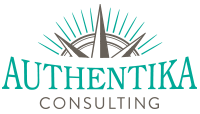
Written by Dr. Anneke Olthof
Is There a Limit to What We Can Learn and Remember?
The beginning of the New Year marks a fresh start, and its arrival can inspire us learn new things – conversational Russian, the guitar, or pottery – the sky’s the limit.
Or is it? Is there a limit to what we can learn and remember?
No, thank goodness, our learning capacity is arguably limitless. We do not reach a point where our memory is ‘full’ and we say that we can’t possibly hold another piece of information – unlike our appetite when contemplating a piece of cheesecake, perhaps.
That being said, we certainly don’t remember everything we’re exposed to, either. If truth be told, most of what we experience in our lives we forget within a day – the fact that yesterday you washed your red bowl and put it face-down in the back-right corner of the dish rack or changed the roll of toilet paper in the downstairs bathroom or put your left sock on before your right one when you got dressed – all of that stuff is forgotten today.
Encoding, Storing and Retrieving
Nor would we want to waste mental energy on encoding, storing, and retrieving that kind of information. But what about the stuff we want to remember? How can we ensure that content gets in our memory?
This is called encoding, and it is the process of having information enter our memory to become part of our permanent storehouse of memories.
Tips for More Efficient Encoding
Here are some tips for more efficient encoding:
- Use elaborative rehearsal – process the information more deeply, either by organizing it, understanding it, applying it to your life, or relating it to information that is already in your memory
- Avoid maintenance rehearsal – rote repetition of the information
- Encode the information in multiple ways – if you encoded the memory in many ways, such as thinking about how it looks, how it sounds, what it means, and so on, this gives you more ways to access it at the time of retrieval
- Consider mnemonic aids – these are various techniques that help improve memory for specific information
- Acronyms = when the first letter of each to-be-remembered item spells a word
- Example: ‘HOMES’ to remember the 5 great lakes
- First-letter techniques = when the first letter of each to-be-remembered item is used to spell a new sentence
- Example: ‘Never Eat Shredded Wheat’ to remember the compass directions, in order: North East South West
- Trust your visual imagery – if you can form an image of what you want to remember in your head, you can harness your exceptional human ability to remember visual images
- Method of loci or memory palace = associating each to-be-remembered item with a specific location along a previously memorized location, either a familiar path, room in your house, or property on a Monopoly board
- Using this technique, an average person could learn to memorize the order of a shuffled deck of 52 cards within less than a minute!
- https://www.ted.com/talks/boris_nikolai_konrad_how_to_use_memory_techniques_to_improve_learning_and_education_jan_2018
- https://www.ted.com/talks/joshua_foer_feats_of_memory_anyone_can_do/transcript?language=en.
- Don’t be afraid to get crazy – the more you can elaborate on the to-be-remembered stimuli and make it especially unique, colourful, unusual, or silly, the better your memory for it will be
- Acronyms = when the first letter of each to-be-remembered item spells a word
Create Cues
Retrieval is also important in memory, as this process involves the ability to use the information in storage by bringing it out as needed. Not much good to have all this information in your memory if you can’t access it, right? Especially important for successful retrieval are retrieval cues, or stimuli that lead to activation of the information stored in memory. Retrieval cues work because they’re associated with the memory.
Ways to Make Cues More Effective
Here are 3 ways to make retrieval cues more effective:
- Use multiple cues to retrieve your memory – you’re more likely to retrieve your memory if you have many ways to access it (ie, you have it encoded in multiple ways), because if one way doesn’t work, you can try another way
- Know that context is a powerful retrieval cue – where you learned the information or other stimuli associated with learning can serve as a cue for memory
- Even just imagining the learning context at the time of retrieval can help – where you learned it, who you were with, what time of day it was
- Retrieval cues can be internal too – your physiological state and mood can serve as retrieval cues for information you have in memory
-
- Being in the same state/mood at the time of retrieval as you were during learning helps retrieval – whether you were hungry, intoxicated, or sad
So if the New Year has inspired you to learn something new, apply these new tips to help you encode and retrieve that content more efficiently and enjoy!



